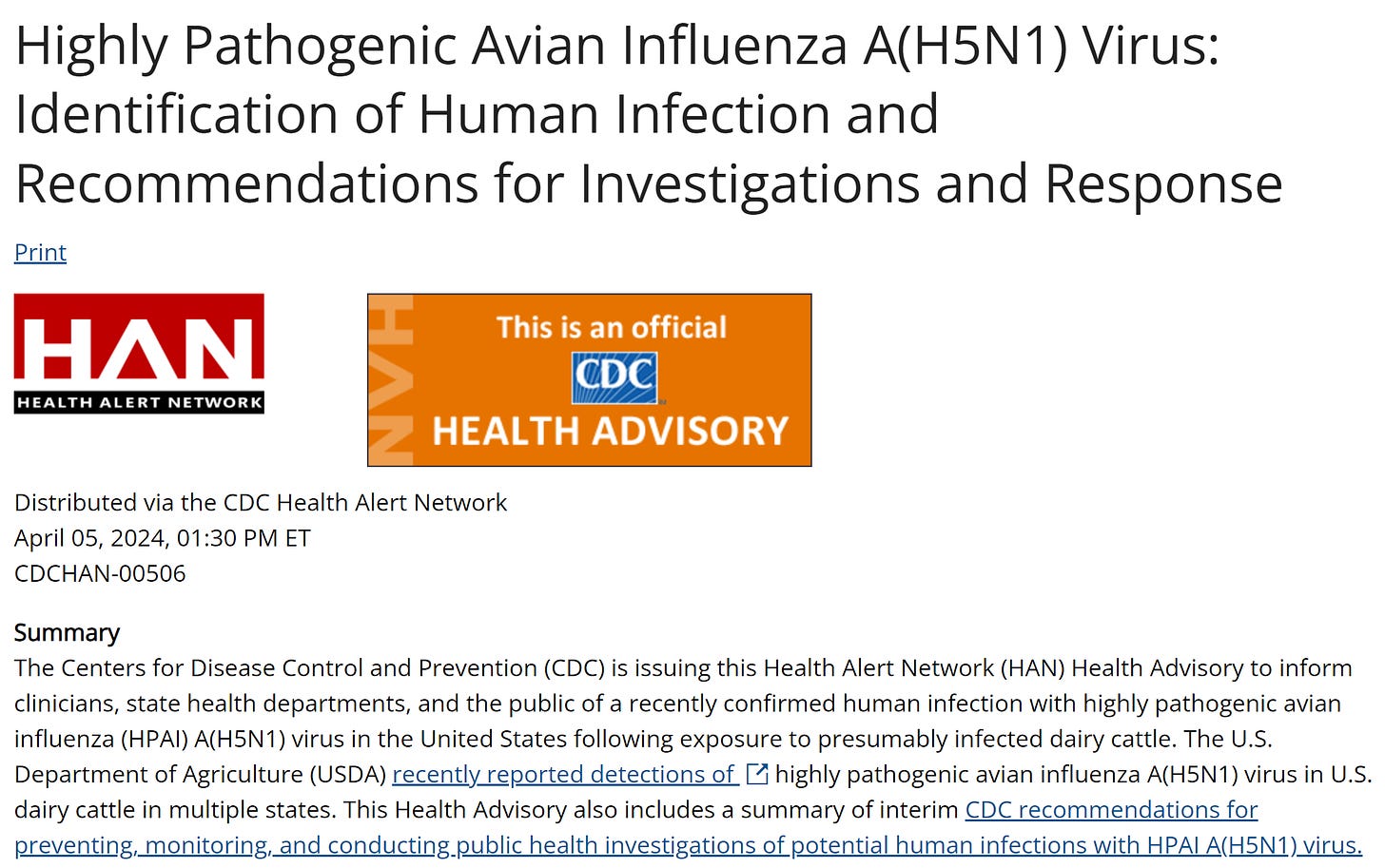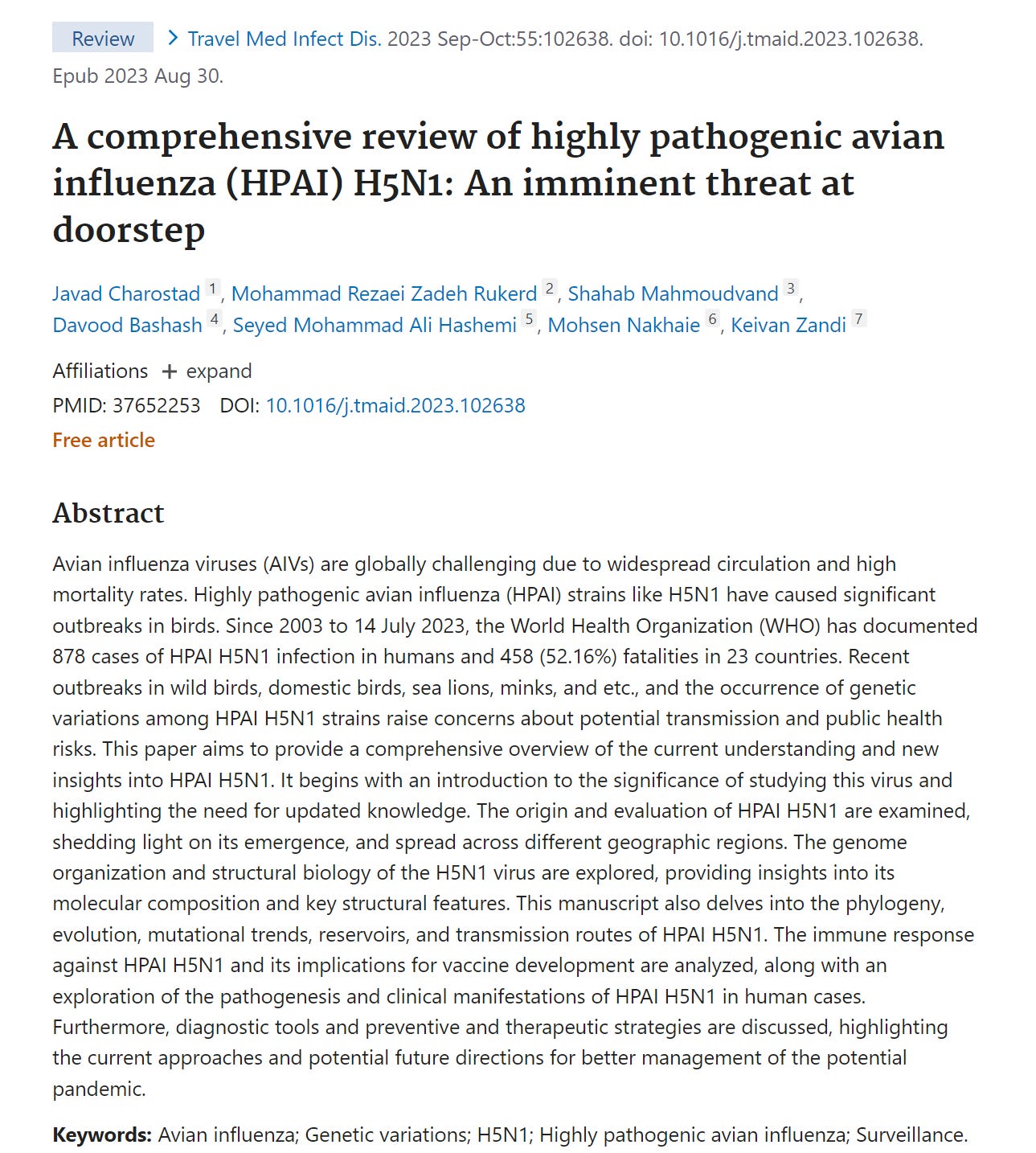Could Avian H5N1 Influenza be Disease X for the Bio-Pharmaceutical Complex?
Fear Mongering, Food Supply Threat, Virus with a Deadly Past, BARDA Self-Amplifying mRNA Vaccines--A Perfect Storm is Brewing
By Peter A. McCullough, MD, MPH and Nicolas Hulscher, MPH (candidate)
With the fear-mongering campaign of ‘Disease X’ sponsored by the Coalition for Epidemic Preparedness and Innovation (CEPI), people are wondering what virus might infect the world next. A few days ago, the CDC issued a health advisory for the H5N1 bird flu as it was detected in a Texas dairy farm worker [1]. His only symptom was conjunctivitis, or inflammation of the eye. As of today, human-to-human transmission has not occurred and thus H5N1 poses limited risk to humans. However, this may change in the near future, especially if we consider the dark history of gain of function (GOF) research regarding H5N1.
Over a decade ago, the National Institutes of Health (NIH) and the Bill and Melinda Gates Foundation funded GOF research that made H5N1 more transmissible [2]. One of the primary authors of this dangerous research is Yoshihiro Kawaoka, who is affiliated with the University of Wisconsin-Madison and University of Tokyo. Another player is Ron Fouchier, working at the Erasmus medical center in the Netherlands [2]. These two have a deep history of modifying viruses in laboratories and infecting animals with various types of pathogens. This research prompted a short pause on GOF research funding by the US government to assess risks [3]. A few years later, in 2017, the NIH resumed funding GOF research [4] because the HHS P3CO Framework was released, detailing ‘safe’ methods to conduct dangerous research with modified pathogens [5]. Charostad, et al, in 2023 indicated that highly pathogenic avian influenza (H5N1) is an “imminent threat.”
Keep reading with a 7-day free trial
Subscribe to Courageous Discourse™ with Dr. Peter McCullough & John Leake to keep reading this post and get 7 days of free access to the full post archives.






